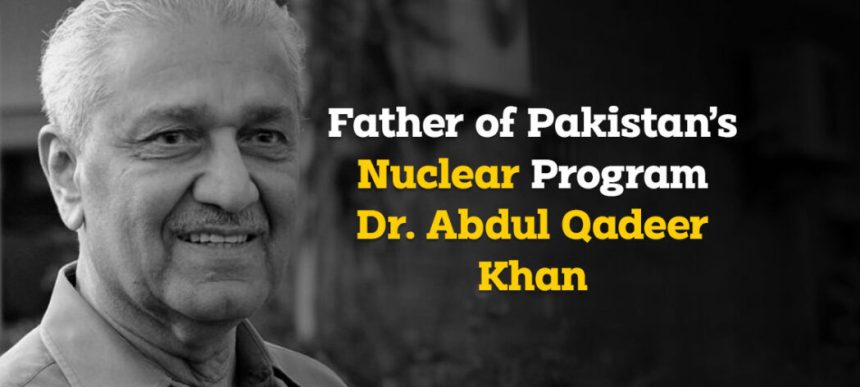Born on April 1, 1936, in Bhopal India, Abdul Qadeer Khan is considered the father of Pakistan’s nuclear program. Khan was very young when his family migrated to Pakistan during the 1947 partition towards the end of British colonial rule. Dr. Abdul Qadeer khan graduated from Karachi University in 1960 with a science degree. Khan later completed his advanced studies in Netherlands and Belgium after studying metallurgical engineering in Berlin. In 1976, on his return to Pakistan, the then prime minister, Zulfikar Ali Bhutto, positioned Khan in charge of the government’s nascent uranium enrichment project.
His pivotal contribution to Pakistan’s nuclear program was the acquisition of a blueprint for uranium centrifuges, which transmute uranium into weapons-grade fuel for nuclear fissile material. By 1978, khan’s team had enriched uranium and through 1984 they were equipped to detonate a nuclear device, a statement by Khan in an interview. Khan retained that nuclear defense was the best deterrent.
In response to Indian atomic tests in 1998, Islamabad carried out atomic tests. Upon which Khan insisted Pakistan “never wanted to make nuclear weapons. It was forced to do so.”
Khan was praised for bringing the nation up to par with India in the atomic field and making its defenses “impregnable” but was accused by the West of smuggling nuclear technology to rogue states (Iran, North Korea, and Libya). After Khan’s nuclear trading network was discovered by western intelligence, He remained under international scrutiny and was declared as a dangerous renegade. The International Atomic Energy Agency positioned Pakistani scientists at the center of a global atomic black market, Khan was detained in early 2004 when he made a televised confession to nuclear proliferation. Exonerated by Pakistan’s then military ruler Pervez Musharraf, in lieu, he was put under house arrest for five years.
“I saved the country for the first time when I made Pakistan a nuclear nation and saved it again when I confessed and took the whole blame on myself,” Khan told Agence France-Presse in an interview in 2008.
Khan remained under strict supervision after his house arrest was lifted. He was granted restricted freedom of movement around the capital, under authority’s supervision, whom he had to inform of his every move. Foreign investigators were prohibited by Pakistan from further questioning Khan, asserting it has passed on all relevant information regarding nuclear proliferation.
Read: Nuclear Black Market in India; should the world be concerned?
Pakistan transformed into the world’s first Islamic nuclear weapons power with the efforts of Dr. Abdul Qadeer Khan. He was hailed as a national hero, strengthening Pakistan against rival nuclear-armed nation India. The death news of Pakistan’s national icon hit the nation with intense grief and praise for his remarkable legacy. The atomic scientist spent the last years of his life under guarded surveillance, died in the capital died after being transferred with lung problems, Islamabad, where he recently had been hospitalized with Covid-19.
Khan to the city’s KRL hospital, the state-run broadcaster PTV reported. He had been admitted to the same hospital in August with Covid-19. After returning home several weeks ago, he was rushed back after his condition deteriorated.
Khan’s funeral took place in Faisal Mosque in Islamabad according to Islamic traditions within 24 hours of his death. The national scientist is buried in the Faisal mosque upon his request to the prime minister. Pakistan politicians mourned and praised the efforts of Dr. Abdul Qadeer khan.
However, regardless of the controversies that hounded Khan’s career appeared to dent his popularity at home. Across Pakistan, many schools, universities, institutes, and charity hospitals are named after him, his portrait decorating their signs, stationery, and websites.






